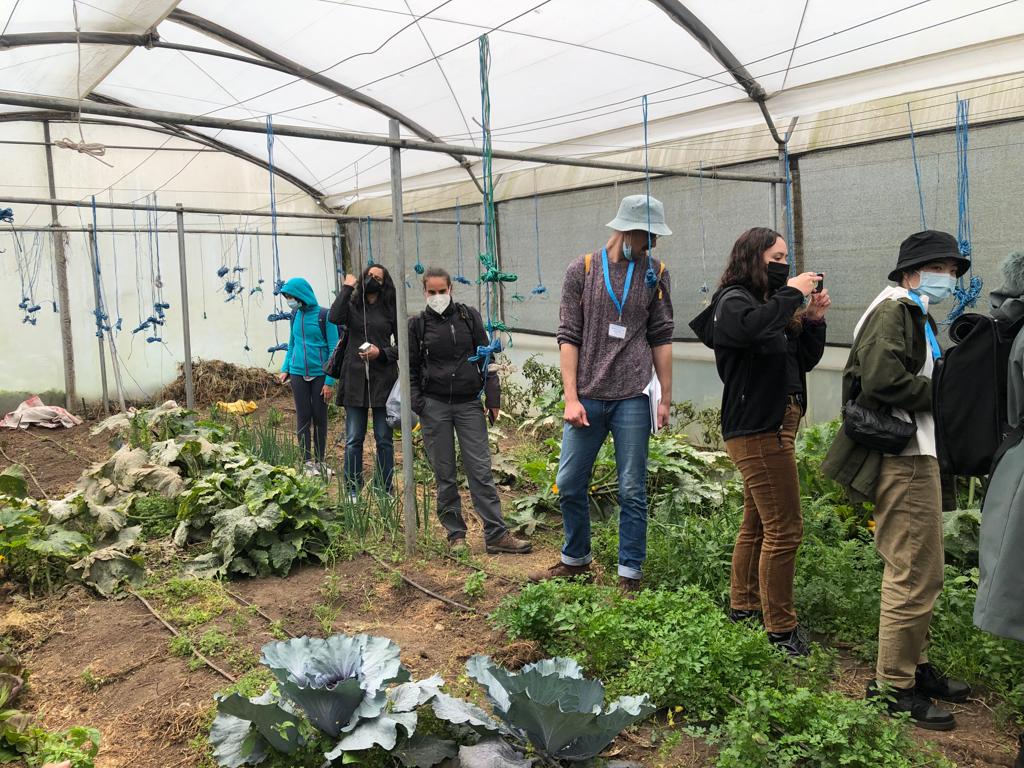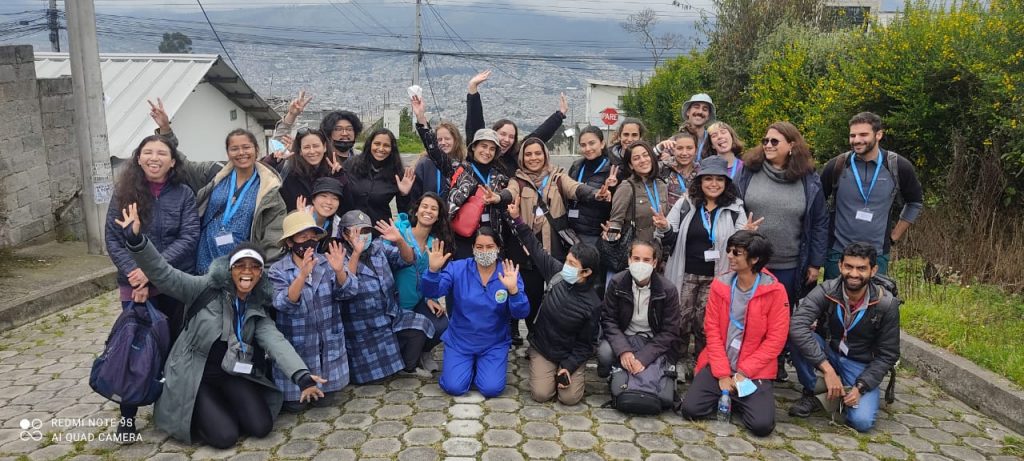After a fwe days in Quito working hand by hand with FLACSO and AYRIWA, our MICSEA teams have been in “La Lucha de los Pobres”. They have developed a small action with the community as well as document the previous analysis to develop a final strategy for the assessment of they preliminary work with the four initial groups focusing on the following specific topics:

GROUP 1. Urban orchards as a connective network of the green infrastructure of the barrio. Map the existing orchards as part of the open space system. Productivity of each orchard and related to the alternative food systems. Waste and recycling, composting. Explore how bottom-up informal solutions (particularly those initiated by women) interact with food systems.
GROUP 2. Climate risk assessment and regeneration of the ‘Bella Argelia’ creek. Look into the diverse existing riks: flooding, heat increase (related to the type of crops, etc.). Rainwater collection systems. What community-based initiatives are implemented in order to better the creek and how the community deals with climate impacts through community-based initiatives.
GROUP 3. Activities and Markets. Prototype of a possible market for the local production of the neighbourhood linked to the community or other communities’ examples. Relationship of informal and formal commercial activities. Analyse existing communal activities related to the market:
communal kitchens, etc. Culturally relevant alternative food systems.
GROUP 4. Physical connectivity. Analyse the three different topographical levels of the neighbourhood. Map the perceived physical barriers of the neighbourhood: safety, sanitation, water, lighting (electricity), social and physical infrastructure. Find strategic meeting points or public areas or voids between the three levels of La lucha de los Pobres in order to enhance connectivity.

After the validation of strategies ON-SITE they will develop a proposal for the socio-spatial integration of data collected by the assessment of the information regarding the physical and social-based findings of each group’s topic; and the implementation and development (including stakeholders and actors involved, phases, budgeting ideas, etc.) as well as which are the limitations.
We are very happy with the work our students are developing with the support of FLACSO and AIRIWA.
Workshop Coordinators
Master International Cooperation Sustainable Emergency Architecture. UIC Barcelona
Dr. Carmen Mendoza Arroyo and Arch. Farzana Gandhi
Assistant Researcher: Ashley Howard
Collaborating Institutions
FLACSO Ecuador: Myriam Paredes and Sara Latorre
University of Montreal: Dr. Gonzalo Lizarralde and Benjamin Herazo
SUSTENTO ‘Enhancing the resilience of alternative food systems in informal settings in Latin America and the Caribbean through bottom-up initiatives in the built environment.’ A project funded by Canada’s IDRC
Local actors
AYRIWA
Consejo comunitario del barrio/ Community neighborhood council.

![2022 FIELD TRIP [Part II] COMMUNITY-LED INITIATIVES FOR SUSTAINABLE FOOD ENVIRONMENTS](https://masteremergencyarchitecture.uic.es/wp-content/uploads/2022/03/WhatsApp-Image-2022-03-16-at-19.29.54.jpeg)